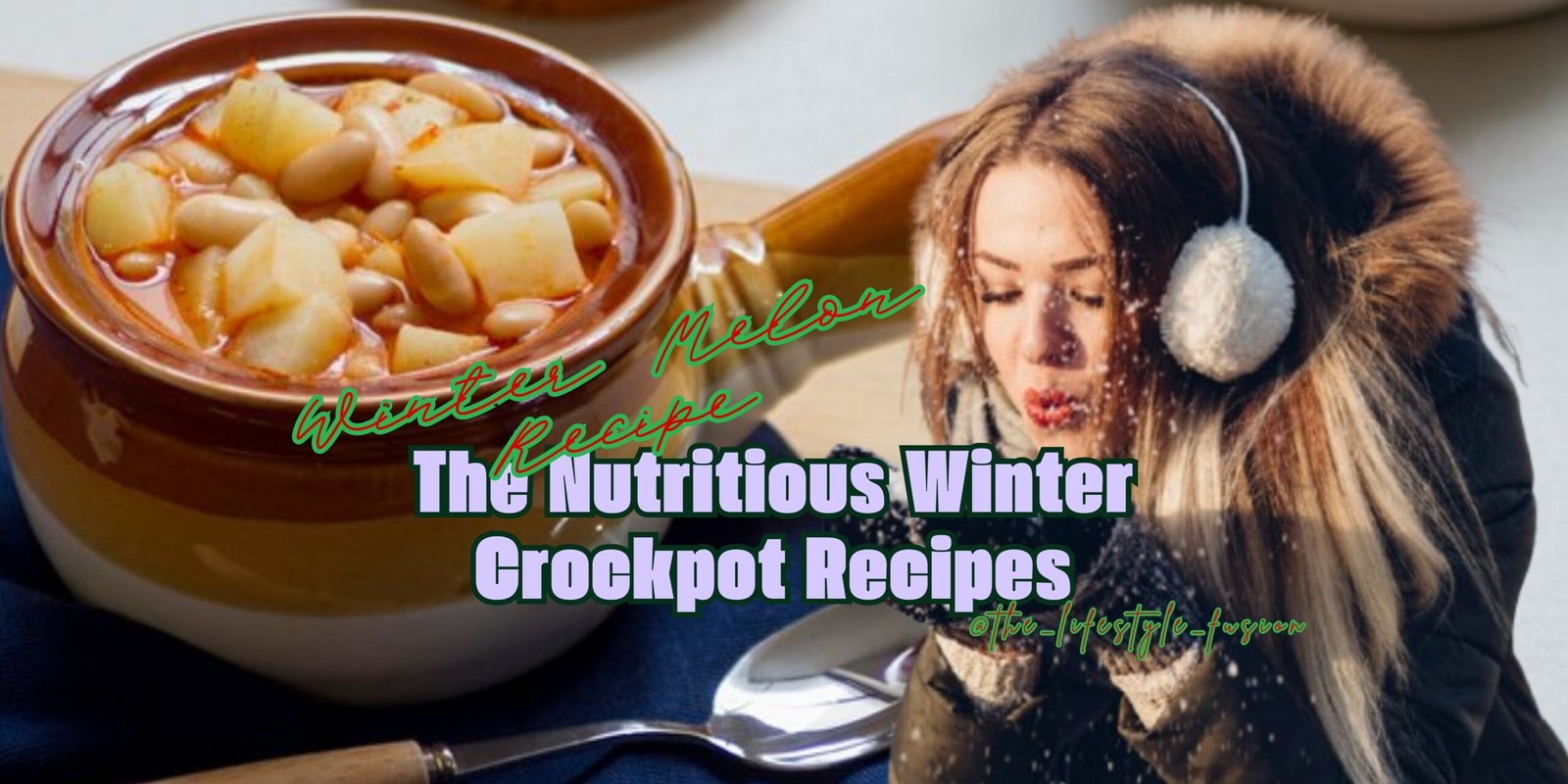Water chestnut extract is obtained from the tuberous roots of the aquatic plant ‘Eleocharis dulcis’, commonly known as water chestnuts. Water chestnuts are aquatic tuber vegetables that are commonly used in Asian cuisine. The extraction process typically involves isolating bioactive compounds, including antioxidants, vitamins, and minerals, that contribute to the numerous health benefits associated with this versatile vegetable. This concentrated extract is often utilized in various forms, such as liquid tinctures, powders, or dietary supplements, to harness its potential therapeutic properties. Known for its anti-inflammatory and antioxidant qualities, water chestnut extract may be incorporated into skincare products for its ability to promote skin health and combat free radicals. Additionally, its potential anti-cancer properties and contributions to heart health make water chestnut extract an intriguing element in the realm of natural health supplements.
Unveiling The 25 Health Benefits of Eating Water Chestnuts
As research continues to explore the diverse bioactive components within water chestnuts, the extract holds promise as a valuable addition to health and wellness routines. These crunchy, sweet, and nutty-flavored tubers offer various health benefits. Here are 25 health benefits of eating water chestnuts along with a comprehensive detail including:
1. Dietary Fiber
Water chestnuts are a notable source of dietary fiber, making them an excellent addition to a fiber-rich diet. The fiber content in water chestnuts supports digestive health by promoting regular bowel movements and preventing constipation. This nutrient also contributes to a feeling of fullness, aiding in weight management by reducing overall calorie intake. The soluble fiber in water chestnuts may help regulate blood sugar levels, making them a beneficial choice for individuals managing diabetes. Additionally, the fiber content supports heart health by helping to lower cholesterol levels. Including water chestnuts in your diet not only adds a satisfying crunch to dishes but also contributes to the overall well-being of the digestive and cardiovascular systems through its rich dietary fiber content.
2. Rich in Nutrients
Water chestnuts are nutrient-rich tubers that boast an array of health benefits. Packed with essential nutrients, including potassium for heart health and blood pressure regulation, they contribute to a well-rounded diet. Their notable fiber content supports digestive health and aids in weight management, while B vitamins like B6 play a crucial role in metabolism and cognitive function. Low in calories and fat, water chestnuts make for a nutritious snack option. Additionally, their high water content not only promotes hydration but also helps maintain proper fluid balance in the body. Rich in antioxidants, such as ferulic acid, water chestnuts provide potential protection against oxidative stress.
3. Low in Calories
Water chestnuts are an excellent choice for those seeking a low-calorie addition to their diet. These crunchy tubers are inherently light on calories, making them a favorable option for weight-conscious individuals. With their low-calorie profile, water chestnuts provide a satisfying and nutritious alternative to higher-calorie snacks, contributing to a balanced and calorie-conscious eating plan. Whether used in salads, stir-fries, or enjoyed on their own, water chestnuts offer a delightful texture and subtle sweetness without significantly impacting your daily caloric intake. Incorporating these low-calorie gems into meals not only enhances the culinary experience but also supports a mindful and health-conscious approach to managing overall calorie consumption.
4. Hydration
Water chestnuts contribute to hydration with their high water content, which is essential for maintaining overall health and well-being. Hydration is crucial for various bodily functions, including temperature regulation, nutrient transportation, and waste elimination. The water content in water chestnuts not only supports these physiological processes but also helps keep the body adequately hydrated. Including water chestnuts in your diet can be a flavorful and hydrating way to meet your daily fluid needs, especially when combined with other hydrating foods and beverages. Staying well-hydrated is fundamental for promoting optimal organ function, supporting the skin’s elasticity, and ensuring overall vitality.
5. Improves Vision
Water chestnuts may contribute to improved vision through their content of essential nutrients, including vitamin B6 and vitamin C. Vitamin B6 plays a role in the production of neurotransmitters that transmit visual information from the eyes to the brain. Additionally, the antioxidant vitamin C is known for its protective effects against age-related macular degeneration and cataracts, common conditions affecting vision. While water chestnuts alone are not a cure for vision issues, incorporating them into a balanced diet rich in various vitamins and antioxidants can be a supportive measure for maintaining eye health. It’s important to complement dietary choices with regular eye check-ups and consultations with healthcare professionals for comprehensive eye care.
6. Reduces Fatigue
Water chestnuts may help reduce fatigue due to their nutritional composition, including energizing elements. The tubers contain complex carbohydrates, which serve as a sustained source of energy. The gradual release of glucose into the bloodstream from these carbohydrates helps prevent rapid spikes and crashes in blood sugar levels, contributing to a more stable and enduring energy supply. Additionally, the presence of B vitamins, particularly vitamin B6, supports the body’s metabolism and aids in converting food into energy. By incorporating water chestnuts into your diet, you provide your body with a nutrient-rich option that may contribute to reducing fatigue and promoting lasting vitality, making them a valuable addition to meals for those seeking sustained energy throughout the day.
7. Low in Fat
Water chestnuts are a low-fat food option, making them a health-conscious choice for individuals looking to manage their fat intake. These crunchy tubers contain minimal amounts of fat, particularly saturated fat, which is associated with an increased risk of cardiovascular issues when consumed in excess. By incorporating water chestnuts into meals, individuals can enjoy a satisfying texture and mild sweetness without worrying about a significant contribution to their overall fat consumption. Whether used in stir-fries, salads, or other dishes, water chestnuts offer a flavorful and low-fat addition that aligns with dietary preferences focused on reducing fat content for a heart-healthy lifestyle. Their versatility and nutritional profile make them a welcome component in various recipes for those aiming to maintain a balanced and low-fat diet.
8. Rich in Antioxidants
Water chestnuts exhibit richness in antioxidants, contributing to their potential health benefits. These antioxidants, such as ferulic acid found in water chestnuts, play a crucial role in neutralizing harmful free radicals in the body. By doing so, they help protect cells from oxidative stress, which is linked to various chronic diseases and aging processes. Incorporating water chestnuts into your diet provides a tasty way to boost your antioxidant intake, supporting overall well-being and potentially reducing the risk of oxidative damage to cells and tissues. The presence of these antioxidants underscores the nutritional value of water chestnuts, making them not just a delightful addition to meals but also a valuable component of a health-conscious diet aimed at promoting cellular health and longevity.
9. Gluten-Free
Water chestnuts are naturally gluten-free, making them a safe and versatile option for individuals with gluten sensitivities or celiac disease. Unlike some grains and cereals that contain gluten, water chestnuts are tubers and do not pose any risk of gluten cross-contamination. This makes them a valuable addition to gluten-free diets, providing a crunchy and nutritious alternative in various culinary applications. Whether sliced and added to salads, included in stir-fries, or used as a gluten-free thickening agent in sauces, water chestnuts offer a gluten-safe option without compromising on flavor or texture. Their gluten-free nature broadens the range of dietary choices for those with gluten-related concerns, allowing them to enjoy a diverse and flavorful array of dishes while meeting their nutritional needs.
10. Anti-Inflammatory Properties
Water chestnuts possess anti-inflammatory properties, contributing to their potential health-promoting effects. The presence of bioactive compounds, including antioxidants like ferulic acid, in water chestnuts helps to mitigate inflammation in the body. Chronic inflammation is associated with various health conditions, including cardiovascular diseases and certain chronic disorders. The anti-inflammatory properties of water chestnuts make them a valuable dietary inclusion for individuals looking to reduce inflammation and support overall health. Regular consumption of water chestnuts as part of a well-balanced diet may contribute to the management of inflammatory processes, potentially lowering the risk of inflammatory-related diseases and promoting a healthier inflammatory response within the body. Incorporating these crunchy tubers into meals can be a flavorful way to harness their anti-inflammatory benefits and enhance the nutritional quality of the diet.
11. Regulates Blood Pressure
Regulating blood pressure is one of the major health benefits of eating water chestnuts, thanks to their notable potassium content. Potassium is a crucial mineral that helps balance sodium levels in the body, promoting optimal fluid balance and supporting healthy blood pressure. By consuming water chestnuts, individuals may contribute to the maintenance of lower blood pressure levels, reducing the risk of hypertension and related cardiovascular issues. The potassium in water chestnuts acts as a vasodilator, relaxing blood vessels and improving blood flow, which further supports cardiovascular health. Integrating these crunchy tubers into a well-rounded diet provides a tasty and nutritious way to harness their potassium benefits, offering a natural and wholesome approach to blood pressure regulation and overall heart well-being.
12. Promotes Heart Health
Water chestnuts promote heart health through various mechanisms. These crunchy tubers are rich in potassium, a mineral known for its positive impact on cardiovascular well-being. Potassium helps regulate blood pressure by balancing sodium levels, reducing the risk of hypertension, and promoting healthy blood vessel function. Additionally, the low-fat content in water chestnuts contributes to a heart-healthy diet, as it helps manage cholesterol levels. The antioxidants present, such as ferulic acid, may offer further protection against oxidative stress, which is associated with heart-related issues. By incorporating water chestnuts into meals, individuals can enjoy a delicious and heart-friendly addition that supports overall cardiovascular health, making them a valuable component of a heart-conscious diet.
13. Boosts Immune System
Water chestnuts can contribute to a strengthened immune system due to their rich nutrient profile. These tubers contain essential vitamins and minerals, such as vitamin C and zinc, both of which play vital roles in immune function. Vitamin C is known for its antioxidant properties, helping protect immune cells from damage and supporting the body’s defense against infections. By including water chestnuts in your diet, you provide your body with these immune-boosting nutrients, potentially enhancing its ability to ward off illnesses and infections. The combination of antioxidants and essential minerals in water chestnuts makes them a valuable dietary choice for those looking to fortify their immune system and maintain overall health.
14. Regulates Blood Sugar
Water chestnuts can contribute to the regulation of blood sugar levels, making them a beneficial choice for individuals managing diabetes or those looking to support overall metabolic health. These tubers have a low glycemic index, meaning they cause a slower and steadier increase in blood sugar compared to high-glycemic foods. Additionally, the dietary fiber in water chestnuts helps to slow down the absorption of glucose, preventing rapid spikes in blood sugar levels. Combining these factors makes water chestnuts a suitable option for promoting stable blood sugar levels. However, individuals with diabetes should still monitor their carbohydrate intake and consult with healthcare professionals to create a well-rounded and personalized dietary plan that aligns with their specific needs and conditions.
15. Assisting Weight Management
Water chestnuts can be beneficial for weight management due to their low-calorie and low-fat nature combined with a satisfying crunch. With their minimal fat content, these tubers offer a nutritious alternative to higher-calorie snacks, allowing individuals to indulge in a tasty treat without significantly impacting their overall caloric intake. Furthermore, the dietary fiber in water chestnuts contributes to a feeling of fullness, promoting satiety and potentially reducing overall calorie consumption. As a result, incorporating water chestnuts into meals can be a strategic and enjoyable way to support weight management efforts, providing a flavorful addition to dishes while contributing to a balanced and calorie-conscious diet.
16. Maintains Healthy Skin
Water chestnuts contribute to maintaining healthy skin through their rich content of essential nutrients. The presence of vitamin C, a powerful antioxidant in water chestnuts, supports collagen synthesis, which is crucial for skin elasticity and the prevention of premature aging. Collagen is a structural protein that helps keep the skin firm and resilient. Additionally, the antioxidants present in water chestnuts, such as ferulic acid, help protect the skin from oxidative stress, reducing the risk of damage caused by free radicals. Furthermore, the hydration-promoting properties of water chestnuts, owing to their high water content, contribute to skin health by maintaining moisture levels and preventing dryness. Including water chestnuts in your diet can be a tasty way to nourish your skin from the inside out, supporting a radiant and healthy complexion.
17. Supports Bone Health
Water chestnuts support bone health due to their mineral content, particularly manganese. Manganese is essential for the formation and maintenance of healthy bones and connective tissues. It plays a crucial role in bone metabolism, aiding in the development and repair of bone structures. Additionally, water chestnuts contain other minerals such as phosphorus, which is vital for bone mineralization and strength. By including water chestnuts in your diet, you provide your body with these key minerals, fostering optimal bone health. This makes water chestnuts a valuable dietary addition, especially when combined with a well-balanced intake of other bone-supportive nutrients, for individuals looking to maintain strong and resilient bones throughout their lives.
18. Aids in Digestion
Water chestnuts can aid in digestion due to their significant fiber content. Fiber is crucial for maintaining a healthy digestive system as it adds bulk to the stool, preventing constipation and promoting regular bowel movements. The insoluble fiber found in water chestnuts helps move food through the digestive tract efficiently, supporting overall gastrointestinal health. Additionally, adequate fiber intake can contribute to a feeling of fullness, which may assist in weight management by reducing overall calorie consumption. By incorporating water chestnuts into your diet, you provide your body with a natural and delicious way to enhance digestive processes, ensuring efficient nutrient absorption and promoting a well-functioning digestive system.
19. Improves Cognitive Function
Water chestnuts may contribute to improved cognitive function due to their content of essential nutrients, including B vitamins like vitamin B6. Vitamin B6 plays a key role in the synthesis of neurotransmitters, the chemical messengers that transmit signals in the brain. These neurotransmitters are crucial for various cognitive functions, including memory, attention, and mood regulation. By incorporating water chestnuts into your diet, you provide your body with this vital B vitamin, supporting optimal brain health and potentially enhancing cognitive abilities. Additionally, the antioxidants present in water chestnuts, such as ferulic acid, may offer protective benefits against oxidative stress, which is linked to cognitive decline. While water chestnuts alone are not a magical solution, their inclusion in a balanced diet can be a flavorful and nutritious part of a lifestyle that promotes cognitive well-being.
20. Anti-Cancer Properties
Water chestnuts contain compounds that exhibit potential anti-cancer properties, contributing to their role in supporting overall health. The presence of antioxidants, including ferulic acid, in water chestnuts may help neutralize free radicals and reduce oxidative stress, which is linked to the development of cancer. Additionally, the fiber content in water chestnuts may play a role in cancer prevention by promoting regular bowel movements and aiding in the removal of potential carcinogens from the digestive tract. While more research is needed to fully understand the extent of water chestnuts’ anti-cancer properties, their rich nutrient profile and potential contributions to a healthy, balanced diet suggest they can be a valuable component of a preventive lifestyle against certain types of cancer. As with any dietary considerations related to health, it’s essential to consult with healthcare professionals for personalized advice and strategies.
21. Relieves Respiratory Issues
Water chestnuts may provide relief for respiratory issues due to their antioxidant and anti-inflammatory properties. The antioxidants, including ferulic acid, present in water chestnuts can help combat oxidative stress in the respiratory system, potentially reducing inflammation and damage to lung tissues. Additionally, the anti-inflammatory effects may alleviate symptoms associated with respiratory conditions. While more research is needed to establish the specific impact of water chestnuts on respiratory health, their nutrient profile and potential anti-inflammatory benefits make them a nutritious addition to a well-balanced diet that may support overall respiratory well-being. It’s important to note that while dietary choices can complement respiratory health, individuals with respiratory issues should seek advice from healthcare professionals for comprehensive management and treatment.
22. Provides Sustainable Energy
Water chestnuts can provide sustainable energy due to their balanced composition of complex carbohydrates, fiber, and essential nutrients. The carbohydrates in water chestnuts are a good source of energy, and their low glycemic index ensures a gradual release of glucose into the bloodstream, promoting sustained energy levels. The fiber content contributes to a steady absorption of nutrients, preventing rapid spikes and crashes in blood sugar that can lead to fluctuations in energy. Furthermore, the presence of B vitamins, such as vitamin B6, supports the body’s metabolism, aiding in converting food into energy. Including water chestnuts in your diet can offer a wholesome and sustainable energy source, making them a valuable addition for those seeking lasting vitality throughout the day.
23. Anti-Aging Properties
Water chestnuts may possess anti-aging properties attributed to their rich content of antioxidants, such as ferulic acid. Antioxidants are crucial in neutralizing free radicals that contribute to cellular damage and aging. By combating oxidative stress, these antioxidants in water chestnuts may help reduce the appearance of fine lines and wrinkles, promoting a more youthful complexion. Additionally, the presence of essential nutrients, including vitamin C, supports collagen synthesis, contributing to skin elasticity and firmness. While water chestnuts alone cannot halt the aging process, their inclusion in a balanced diet may complement a holistic approach to skin health, offering a delicious and nutritious way to support overall well-being and potentially slow down certain aspects of the aging process.
24. Anti-Diarrheal Properties
Water chestnuts are believed to have anti-diarrheal properties due to their rich fiber content. The insoluble fiber in water chestnuts adds bulk to the stool, aiding in the formation of well-formed bowel movements and preventing diarrhea. This fiber also helps regulate bowel movements by promoting a healthy balance in the digestive system. Additionally, the presence of certain compounds in water chestnuts may contribute to their potential anti-diarrheal effects. While more research is needed to fully understand the mechanisms involved, the fiber and other components in water chestnuts make them a potentially helpful dietary inclusion for individuals experiencing diarrhea or looking to maintain digestive regularity. As with any health concern, it’s advisable to consult with healthcare professionals for personalized advice and appropriate management.
25. Versatile in Cooking
Water chestnuts are exceptionally versatile in cooking, adding a delightful crunch and subtle sweetness to a wide array of dishes. Their mild flavor allows them to complement both savory and sweet recipes, making them a favorite in various cuisines. Commonly used in Asian stir-fries, salads, and soups, water chestnuts retain their crisp texture even after cooking, providing a satisfying contrast to other ingredients. They can be sliced and added to vegetable stir-fries, used in spring rolls, or incorporated into chicken or shrimp dishes for a delightful texture. Moreover, their neutral taste makes them adaptable to both traditional and innovative culinary creations, from adding a refreshing crunch to salads to being used as a unique ingredient in desserts. Overall, the versatility of water chestnuts makes them a valuable addition to the kitchen, enhancing the texture and flavor of a diverse range of dishes.
In conclusion, the health benefits of eating water chestnuts offer many benefits that make them a valuable addition to a balanced and healthy diet. Rich in essential nutrients like potassium, fiber, and vitamins, water chestnuts contribute to heart health, regulate blood pressure, support digestion, and promote sustainable energy. Their antioxidant properties, including the presence of ferulic acid, suggest potential anti-inflammatory and anti-aging effects. Moreover, water chestnuts’ low-calorie and low-fat nature make them an ideal choice for weight management. The tubers also showcase versatility in the kitchen, adding a satisfying crunch to various dishes. Whether consumed for their potential immune-boosting qualities, anti-diarrheal effects, or as a source of hydration, water chestnuts emerge as a nutritious and flavorful option that aligns with overall well-being and culinary diversity.






